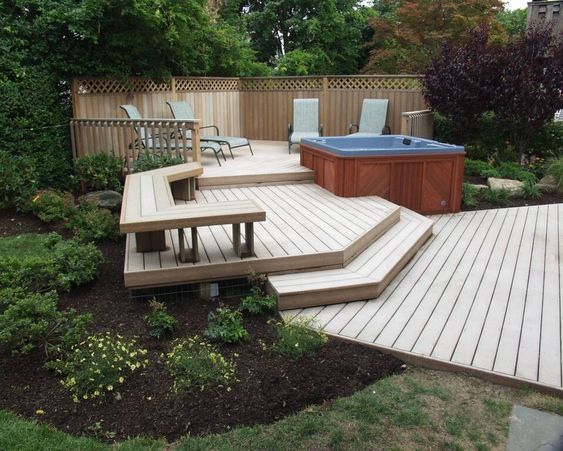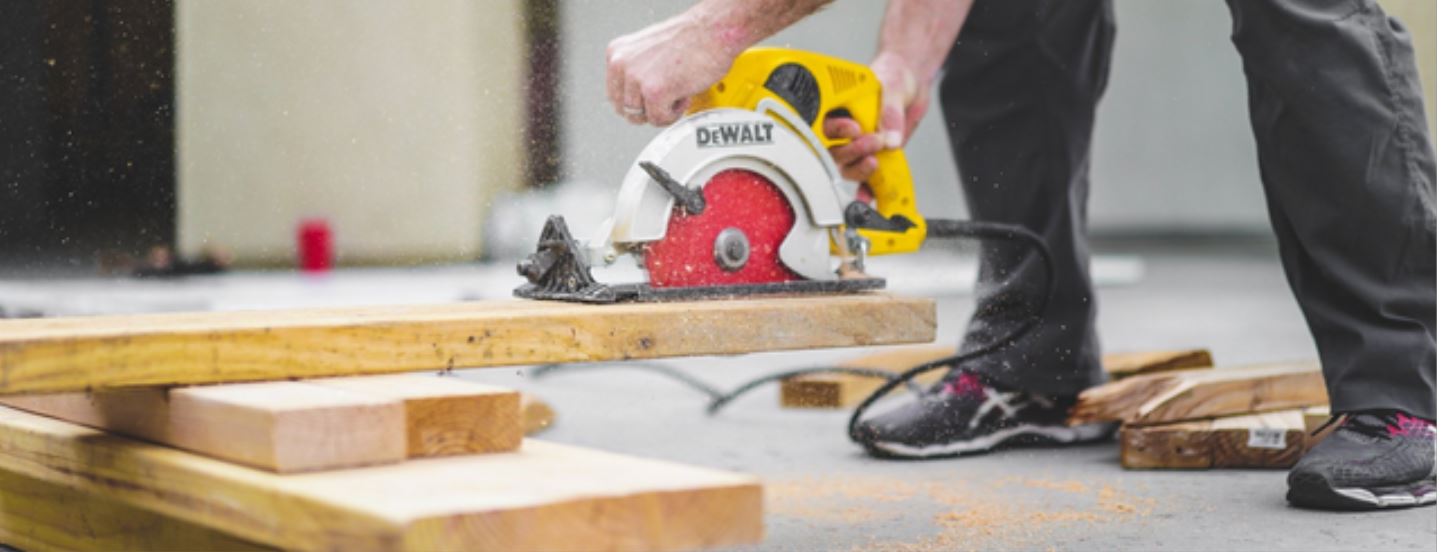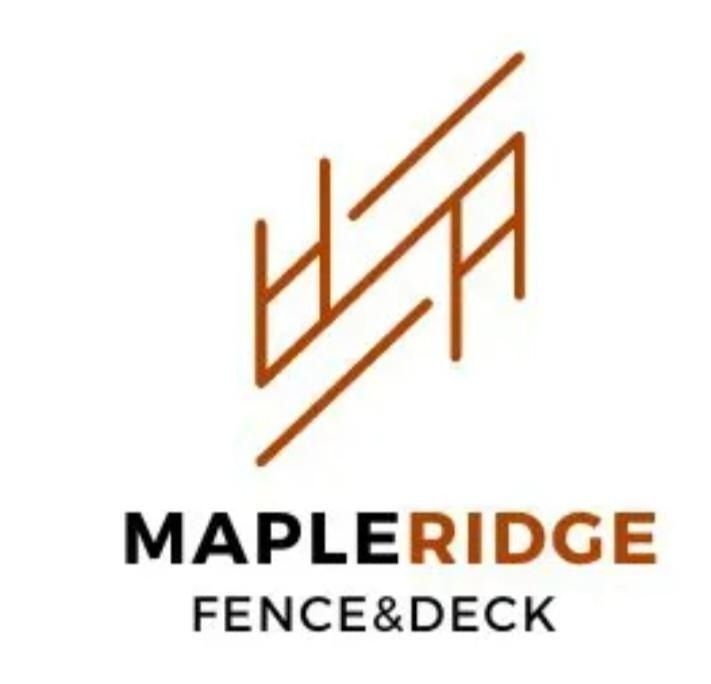Maple Ridge Fence & Deck
Choosing the Perfect Deck Contractor Near You: X-Factors for Winter Deck Building
Building a deck during the winter season may not be the first idea that comes to mind, but it can be a smart choice with numerous benefits. Winter deck building has unique considerations that, if properly addressed, can lead to a successful and rewarding project.
This article will explore the essential factors to consider when undertaking a winter deck-building project. From weather conditions and material selection to planning and safety measures, we will provide valuable insights and guidance to help you navigate the challenges and make the most of the winter season for your deck construction.

Deck Installation Companies: Factors To Consider For Your Winter Deck Building
Material Selection
Choose materials that are suitable for winter conditions. Opt for deck and fence materials resistant to moisture, freezing temperatures, and potential damage from ice and snow. Consider using composite decking, PVC decking, or durable hardwoods for decks. Materials like vinyl, aluminum, or treated wood can be appropriate choices for fences.
Structural Integrity
Ensure that the deck and fence structures are designed to withstand the weight of accumulated snow and ice—adequately size and space the support beams, footings, and posts to handle the additional load. Consulting with a structural engineer or an experienced contractor is beneficial to ensure the proper design and construction of the deck and fence.
Wind Resistance
Consider the wind patterns in your area when designing and constructing the deck and fence. Install sturdy posts and secure the fence panels properly to withstand strong winds. Design the deck to minimize the wind's impact on usability and comfort.
Snow and Ice Removal
Plan for effective snow and ice removal from the deck and fence. Ensure there is ample space for snow removal without damaging the structures. Consider the placement of the deck concerning areas where snow can be safely cleared, and plan for proper drainage to prevent ice buildup.
Railing Safety
Pay attention to the safety of deck railings, especially during winter. Ensure the railing height and spacing between balusters or pickets comply with local building codes. Choose sturdy materials that can withstand the additional stress caused by leaning or pushing against the railing due to icy conditions.
Visibility and Lighting
Install adequate lighting to ensure visibility and safety on the deck and near the fence during winter's shorter daylight hours. Use energy-efficient LED lights to illuminate walkways, stairs, and the perimeter of the deck and fence.
Maintenance and Protection
Properly maintain the deck and fence during winter to protect them from moisture, ice, and snow. Regularly remove snow and ice buildup to prevent damage. Consider using protective coatings or sealants designed for winter conditions to provide an extra layer of protection.
Compliance with Codes and Regulations
Ensure that the deck and fence construction comply with local building codes and regulations, including requirements for snow load capacity, fence height, and spacing. Following these guidelines ensures the structures meet safety standards and withstand winter weather conditions.

Deck Companies Near Me: Top Materials For Winter Deck Building
1. Composite Decking
Moisture Resistance
Composite decking is typically made from wood fibres and plastic, giving it excellent moisture resistance. Unlike wood, it doesn't absorb water, reducing the risk of cracking, warping, or rotting during freeze-thaw cycles.
Low Maintenance
Composite decking requires minimal maintenance during winter. It doesn't need staining, sealing, or painting like wood, which can be challenging in cold weather. Regular cleaning to remove debris and prevent ice buildup is usually sufficient to keep it in good condition.
Slip Resistance
Many composite decking brands have textured surfaces that provide better slip resistance, even when covered in snow or ice. This can reduce the risk of accidents on your deck during winter.
2. PVC Decking
Moisture Resistance
PVC decking is highly resistant to moisture, making it an excellent choice for winter conditions. It is impervious to water absorption, preventing cracking, warping, or rotting during freezing temperatures.
Durability
PVC decking is known for its durability and ability to withstand extreme weather conditions. It can resist fading, staining, and mould growth, ensuring your deck remains intact and attractive throughout winter.
Low Maintenance
Similar to composite decking, PVC decking requires minimal maintenance during winter. Occasional cleaning to remove debris and prevent ice buildup is usually sufficient to keep it in optimal condition.
3. Aluminum
Corrosion Resistance
Aluminum can withstand the harsh effects of winter weather conditions thanks to its inherent resistance to rust and corrosion. It won't deteriorate when exposed to moisture, ice, or salt, which is commonly used for de-icing.
Lightweight and Strength
Aluminum is lightweight yet strong, providing stability and structural integrity to your deck railing systems. It can handle the weight of snow without bending or warping, ensuring a safe and reliable railing throughout the winter.
4. Concrete
Stability
Concrete is a solid and stable material that can handle heavy snow loads and provide a reliable surface during winter. It won't shift or move like other materials, reducing accidents and improving safety.
Durability
Properly installed and sealed concrete can withstand freeze-thaw cycles without significant cracking or damage. It is moisture-resistant and can endure extreme temperature changes during winter.
Slip Resistance
Concrete can be finished with textured surfaces or coatings that improve traction and reduce slipping, even when wet or covered in snow.
5. Stone
Durability:
Natural stone, such as slate or granite, is highly durable and can withstand winter conditions effectively. It is resistant to moisture, freezing temperatures, and frost, making it a reliable choice for deck surfaces or pavers.
Slip Resistance:
Many natural stone materials have a rough texture, providing good traction and slip resistance, even in wet or icy conditions.
Aesthetics:
Stone provides a distinctive and sophisticated aesthetic that has the potential to elevate the visual appeal of your deck while also enduring the trials of time. However, it is important to note that natural stone can be more expensive and requires professional installation.
Choosing The Right Deck and Fence Materials
Appropriate materials for your deck and fence hold great significance as they can greatly influence the durability, visual appeal, and maintenance needs of your outdoor area. By considering factors such as durability, weather resistance, sustainability, and personal preferences, you can make an informed choice that aligns with your needs and enhances the beauty and functionality of your outdoor living area.
Looking to create an enduring and beautiful outdoor space? Discover the expertise of Maple Ridge Fence and Deck. Type in your device "deck contractor near me" or "decking companies near me" to find the perfect solution for a durable and enjoyable deck and fence that will stand the test of time.
SERVICE AREAS
Maple Ridge, Pitt Meadows, Mission, Langley, Abbotsford, Coquitlam, Chilliwack, Delta, Surrey, Poco, Burnaby, Vancouver, Richmond, North Vancouver, Tsawwassen
Our Services
All Rights Reserved | Maple Ridge Fence & Deck
